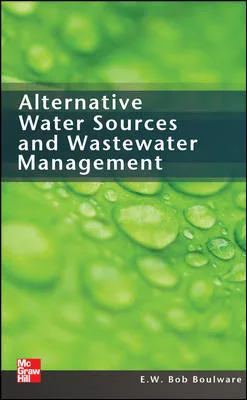An Alternative To Litigation
Can't we all just get along?
Answer:
I wouldn't count on it!
Conflict has a way of arriving without warning. But attempting to anticipate the size and scope of your next fight is about as easy as giving your wife the correct answer when she asks, "Do these pants make me look fat?" It just isn't possible.
The fine details of your next legal battle will likely have to be defined and dissected at the time. There is, however, something you can do right now to handle this future dispute. You see, every major dispute need not end up in a courtroom.
Alternative methods for resolving conflicts exist all around the everyday contractor - contractors like you and me - which can help us sidestep potentially costly and lengthy litigation. One popular process is commonly known as Alternative Dispute Resolution. ADR is an "outside" dispute resolution procedure that can end up being less expensive, less time consuming and less stressful on all the participants than the conventional court system, yet still offers a fair and effective method for resolving construction-industry conflicts.
A Changing Tide
More and more each day, contracting professionals are finding ADR clauses included in their public and private bid packages, often in Division 1, "General Requirements" of the specification manual.As a defendant or plaintiff in a disputed case, the "winner" would still be out thousands of dollars in attorney fees. There's lost time from his business, court costs and much more, and that doesn't even take into account the toll of stress and worry that accompanies a full-fledged legal battle. Also, remember that the owner (assuming it's an owner/contractor dispute) likely isn't making any payments on the project under dispute, further crippling the contractor's cash flow. So, "victory" in court can indeed end up being quite a hollow win. The only true victors in any lengthy litigation are the law firms who will extract their fees from the proceedings.
ADR sets out to correct at least some of these pitfalls, but be aware that the ADR process can range from a highly structured and defined affair to a far more informal, negotiated exercise, such as with smaller, privately owned projects. But the basic premise of ADR remains the same: Allow the potential litigants themselves to have input into and streamline the dispute remediation process. Some of the more attractive attributes of ADR are:
- The process can be performed under private mediation or arbitration. This often helps to shrink the time-window for obtaining resolution from possibly years (in the courts) down to only months ... or even weeks.
- In a nutshell, the participants get to choose their poison. The procedures, location, time frame, arbitrator/mediator, basically anything can be negotiated by the participants.
- Confidentiality can actually be increased because the proceedings aren't open and available to public scrutiny.
- The process is simply more informal. Often, lawyers needn't be involved, and the rules governing the affair are less restrictive than the courts.
- The traditional adversarial relationship between the combatants is tempered somewhat - due to the abbreviated and calmer atmosphere fostered by ADR.
- The process is often less expensive. From start to finish, ADR is far less costly then going to court.
Partnering And ADR: Partnering can best be described as a management philosophy that attempts to improve construction project development, deployment and management through good old-fashioned teamwork. Partnering calls for the people and companies involved in a building project (the owner, general contractor, subcontractor, suppliers, architect, etc.) to enter into a formal agreement, or covenant, vowing an atmosphere of trust, camaraderie and good faith.
The members then go on to develop a stated, written declaration of commitment, communication and fellowship with the ultimate (admittedly Pollyannaish) goal being the eradication of disputes, misinterpretations and misunderstandings that often permeate, plague and eventually poison many construction projects. (Which can often lead to costly claims, litigation and just plain bad PR all around.)
Besides the covenant, details of the project - including construction costs, value engineering, contractor fees, scheduling, even dispute resolution (like ADR) - are discussed in open forum and are mutually ordained by all. This way, worries and concerns of all the parties are flushed out, accounted for and may even act as a foundation for structuring an ADR agreement.
Basically, as a member of the ADR process, you agree to mediate or arbitrate all disputes before filing any formal legal action against another party, should a dispute occur. You may agree to submit to binding arbitration by a neutral third party (such as those supplied by organizations, like the American Arbitration Association, or perhaps a law firm that specializes in mediation/arbitration procedures). You might also have to agree that any lawsuit filed before the arbitration is commenced would be dismissed, although that still may not preclude the possibility of a lawsuit down the line.
The kind and level of mediation/arbitration procedure to be used will often depend on the size of the contract and claim in the dispute. For instance, the parties may agree to only invoke ADR if the claim is (perhaps) under $25,000; anything else would go through the normal system. Basically, it's up to you, the participants. The wording and structure of the agreement will almost certainly vary according to the size, type and cost of the project, along with many other factors. Even the personalities of the players will have an effect, driven mostly by each individual's tolerance for risk.
Here are some other items that could be included in (or might affect) an ADR agreement:
- The level of procedure to be used. Basically, if the project is straightforward and less expensive, the ADR process might be correspondingly simple. As the project grows more costly and complex (and therefore riskier), the ADR would likely grow to include more provisions that would reflect the intricacies and concerns of a larger project.
- The method through which the impartial third party (to act as mediator/arbitrator) is chosen. Suffice it to say that this selection is quite important to the proceeding. This third party should, of course, not take sides in the dispute and be as genuinely impartial as possible. This selection process may even require the participants to interview and gather data on potential candidates.
- In addition to the mediator/arbitrator, you may even opt for another party to act as facilitator. The facilitator's job would be to administer the procedure itself - not oversee it as judge and jury. This may or may not be the same person who acts as the neutral party (but it's probably a good idea to separate the two). This person would decide things, such as when and how often the resolution meetings would be scheduled.
- Of course, the methods and procedures for payment, particularly in regards to disputed amounts, should be included in the agreement. After all, money is generally what these disputes are all about.
- The ADR agreement can spell out exactly who will be involved in the proceedings. For example, if our dispute were between the contractor and owner, would the architect be part of the ADR process? What about the structural engineer? Or would you simply make the agreement to allow for any party to be included in the proceedings, regardless of connection with the project?
- Will outside representation be allowed? For instance, will the combatants be allowed to bring in outside attorneys? Could industry experts be used to assist with one side's case?
- How would information be exchanged by the disputing parties? This is particularly key in regards to sensitive information, such as financial or legal information. Parties need to decide whether they will exchange documents and what limits apply. This can be quite key, as having additional facts on the table (provided by these documents) can resolve a conflict.
A Downside?
Of course nothing is perfect, and ADR is no exception. For example, the ADR can often be made nonbinding (unless specifically made binding by agreement); that is, neither party in the dispute is absolutely required to agree with the ADR decision. "So, what good is it then?" you might ask. Well, though complying with the outcome isn't mandatory, following the process is.Remember that the parties mutually agreed to the procedure early on in the project - probably before the job began. By doing so, they basically agreed that the resolution remedy they selected for settling disputes was fair and equitable to all parties. Therefore, that makes the participants (binding or not) more apt to accept the results of the proceeding.
But there are other concerns over ADR. One popular worry (and probably well-founded) is that many contractors feel there is simply no reason to pursue dispute resolution when the owner has already drafted one-sided clauses in the specification manual, which, in the opinion of the contractor overthrow, any attempt to resolve disputes amicably. Quite frankly, they've got a point. The best ADR procedure in the world won't be worth a hill of beans if the owner maintains that any liability discussed in ADR is precluded by ambiguous clauses or vague statements that often permeate the architectural specifications. To the contractor, the ADR should be "all or nothing" from an owner-commitment standpoint.
Some other perceived downsides to ADR include:
- The economy generated by ADR may potentially cause more claims to be filed; thereby negating much of the reason that ADR exists.
- Sometimes ADR only provides for limited discovery and fact-finding on the part of the combatants. Though this is often a result of the more economical process, it can strengthen or weaken a participant's case accordingly.
- ADR doesn't generally lend itself to extremely large cases or cases that have set out to set legal precedent. These types of disputes are probably still best handled in a conventional court of law.
- If the mediator/arbitrator turns out to be "weak" or unskilled, the results may conflict with the rule of law or fact. The potential awards may indeed end up being watered-down or otherwise compromised (that's why the selection process is so important).
- Huge awards are probably not so likely from an arbitrator/mediator. If you're after big money, take it to court.
Looking for a reprint of this article?
From high-res PDFs to custom plaques, order your copy today!









